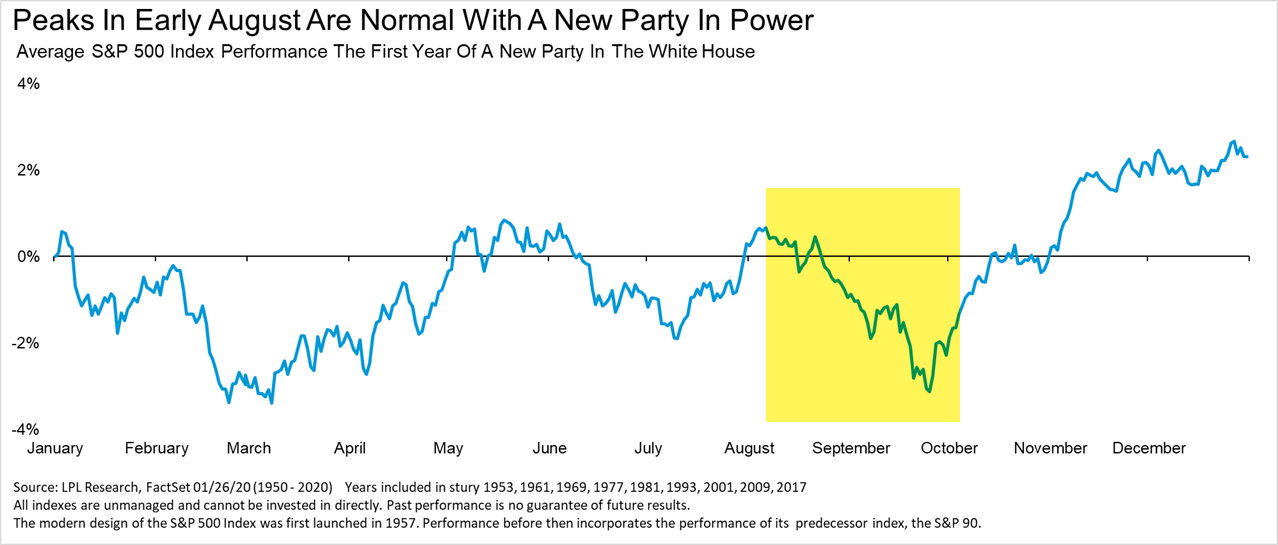August and September have historically been relatively weak months for the S&P 500, but LPL Financial Chief Market Strategist Ryan Detrick says August has been a particularly disappointing month following U.S. election years.
What To Know: Detrick pointed out that since 1950, post-election rallies when a new political party wins the White House have historically peaked in early August and then pulled back through the end of September.
Overall, September has been the weakest month for the S&P 500 since 1950. Last year, the SPDR S&P 500 ETF Trust SPY experienced a 10% correction during the month of September.

Related Link: Why A 'Massive Wave Of Bankruptcies' Could Be Just Around The Corner
How To Play It: Fundamental economic numbers suggest the post-pandemic recovery and expansion still has a long way to go, so long-term investors should be prepared to take advantage of any seasonal weakness in stock prices in the next couple of months.
In addition, Detrick said they shouldn’t ignore the momentum in the market right now that has carried the S&P 500 higher for six consecutive months. Historically, a six-month win streak has been a bullish longer-term indicator.
“What most might not realize is that is a very bullish event. In fact, one year later it has been up 18 of 21 times with nearly a 12% average return,” Detrick said.
In fact, two-thirds of the times the S&P 500 has traded higher for at least six consecutive months, the winning streak continued on to seven months or longer.
Benzinga’s Take: Seasonal market trends are interesting and sometimes helpful anecdotes that give investors perspective on how the recent market action fits into a bigger historical picture. Past performance certainly doesn’t guarantee future results, however, so investors shouldn’t rely too heavily on trends from the past.
© 2025 Benzinga.com. Benzinga does not provide investment advice. All rights reserved.
Trade confidently with insights and alerts from analyst ratings, free reports and breaking news that affects the stocks you care about.